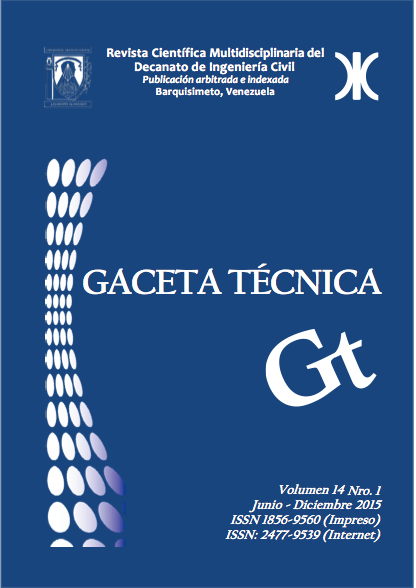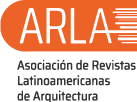Mathematics learning under a blended format: a view from engineering students UCLA – DCYT
DOI:
https://doi.org/10.13140/RG.2.1.3114.8406Keywords:
learning, TIC, blended learningAbstract
The purpose of this research was to reveal, understand and interpret the meanings related to the mathematics learning produced through a virtual environment under blended format, given by ten third semester students of Computer Engineering at the school of science and Technology of the Lisandro Alvarado University. The research was based on the interpretive paradigm from the phenomenological-hermeneutic perspective. The technique of in-depth interview was used for data collection. The results lead to the configuration of the following categories: perception of mathematics in blended learning environments and generation of mathematical knowledge, which allowed the theoretical construction that permits the conception of mathematics learning in the fields of blended learning environments as a gradual process, where its demystification is relevant, incorporating virtual environments to support learning in the context of modernization of educational settings
Downloads
References
[2] A. Dávila, C. Ruíz y J. Francisco. “Modelo tecno-pedagógico para la implantación de la modalidad semipresencial en la educación universitaria”, [En línea], Educare, vol. 17, no 3, pp. 116-140, Diciembre, 2013, Disponible en: http://revistas.upel.edu.ve/index.php/ educare/article/view/1171/420
[3] M. Sánchez, “Aprendizaje de la matemática en un clima motivacional y social propicio en un contexto de la sociedad del conocimiento desde una perspectiva constructivista y compleja”, Tesis doctoral, Universidad Fermín Toro, Barquisimeto, 2010.
[4] C. Ruíz. “El blended learning: evaluación de una experiencia de aprendizaje a nivel de postgrado”, [En línea], TE, Teoría de la Educación, volVol.8, no 3, pp. 188 – 199, Diciembre, 2008, Disponible en: http://campus.usal.es/~teoriaeducacion/rev_numero_08_03/n8_03_ruiz_bolivar
[5] Diccionario de la Real Academia Española [En línea], España, 2014 Disponible en: http://www.rae.es/
[6] E. Morín, Introducción al Pensamiento Complejo, 1a ed., Ediciones Gedisa, España, 1994.
[7] P. Angulo, “La enseñanza de la matemática: proceso versus resultado”, [En línea], Educere, vol. 10, no 33, pp. 343-345, Junio, 2006, Disponible en: http://www.scielo.org.ve/scielo.php?script=sci_arttext&pid=S1316-49102006000200018
[8] E. Torres, “La semipresencialidad un modelo educativo para la universidad en transición.”, presentado en Conf. IV Congreso Internacional sobre Historia y Prospectiva de las Universidades en Europa y América, UPEL-IPB, Barquisimeto, Venezuela, 2006.
[9] A. Pérez, “El uso de la interacción asincrónica en el método instruccional para mejorar la calidad del aprendizaje”, Tesis doctoral, Nova Southeastern University, Florida, NSU, 2005
[10] C. Azcárate y M. Camacho, “Sobre Investigación en didáctica del análisis matemático”, Boletín Asociación Matemática Venezolana, vol.10, no 2, pp.135-149, 2003
[11] M. Martínez, La Nueva Ciencia. Su Desafío Lógica y Método, 1a ed., Ediciones: Trillas, México, 1999
[12] Y. Lincoln y E. Guba, Paradigmatic controversies, contradictions and emerging confluences. Handbook of Qualitative Research, 2da ed., New York, 2000
[13] L. Medina, “Dimensiones ontológicas en la investigación”, Seminario doctoral, Barquisimeto, Venezuela, Universidad Yacambú, 2007, pp. 3-8
[14] T. Ibáñez, Psicología social construccionista, 1a ed., Universidad de Guadalajara, México, 1994
[15] M. Heidegger, Ser y tiempo, 4ta ed., Ed. Universitaria, Chile, 2005
[16] H-G. Gadamer, Verdad y método. Fundamento de una hermenéutica filosófica, 5ta ed., Ed. Sígueme, España, 1977
[17] J. Spradley, The etnographic interview, Ed. Rinehart & Winston. Holt, New York, 1979
[18] R. Hernández, C. Fernández y L. Pilar, Metodología de la investigación, 4ta. ed., Ed. McGraw-Hill, México, 2006
[19] A. Caballero y L. Blanco, “Las actitudes y emociones ante las Matemáticas de los estudiantes para Maestros de la Facultad de Educación de la Universidad de Extremadura”, [En línea], XI Simposio de Investigación y Educación Matemática SEIEM, España, 2007, pp. 2-14, Disponible en: http://www.eweb.unex.es/eweb/ljblanco/documentos/anacaba.pdf
[20] A. Alsina y M. Domingo. “Cómo aumentar la motivación para aprender matemáticas”, [En línea], Suma, vol. 56, pp. 23-31, Noviembre, 2007, Disponible en http://revistasuma.es/IMG/pdf/56/023-031.pdf
[22] L. Vigotsky, El desarrollo de los procesos psicológicos superiores, 1a ed., Ed. Crítica, España, 1978
[23] C. Chadwick, “La psicología del aprendizaje constructivista”, CEE, Centro de estudios educativos, vol. 31, n° 4, pp. 111-126, Octubre, 2001.
[24] F. Barriga y G. Hernández, Estrategias docentes para un aprendizaje significativo: una interpretación constructivista, 2da. ed., Ed. Mc. Graw Hill, México, 2002
[25] J. Godino, C. Batanero y V. Font (2003, Febrero). Fundamentos de la enseñanza y el aprendizaje de las matemáticas para maestros. [En línea]. Disponible en: http://www.ugr.es/~jgodino/edumat-maestros/manual/1_Fundamentos.pdf
[26] OCDE, “Habilidades y competencias del siglo XXI para los aprendices del nuevo milenio en los países de la OCDE”. [En línea], España, 2010, Disponible en: http://recursostic.educacion.es/blogs/europa/media/blogs/europa/informes/ Habilidades_y_competencias_siglo21_OCDE.pdf
Published
How to Cite
Issue
Section
The opinions expressed by the authors do not necessarily reflect the position of the editor of the publication or UCLA. The total or partial reproduction of the texts published here is authorized, provided that the complete source and electronic address of this journal is cited. Authors have the right to use their articles for any purpose as long as it is done nonprofit. The authors can post on the internet or any other media the final approved version of their work.







.png)




